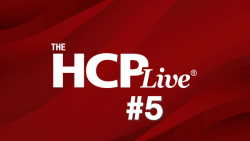
OR WAIT null SECS
Prashant Singh, MD: Rethinking the Low FODMAP Diet for IBS-D
Singh explains a potential new approach to the low FODMAP diet based on findings from research he presented at DDW suggesting a simplified step-up method.
Although the standard approach to a low FODMAP diet includes a step-down approach restricting all 5 FODMAP groups, findings from a recent study suggest a simplified step-up approach initially limiting fewer groups is feasible and has similar efficacy.
The research was presented at Digestive Disease Week (DDW) 2024 in Washington, DC, and shines light on the potential impact of a simplified low FODMAP diet restricting only fructans and galactooligosaccharides followed by an incremental step-up approach on abdominal symptoms in patients with irritable bowel syndrome with diarrhea (IBS-D).
“We all see in clinical practice how restrictive a low FODMAP diet is,” Prashant Singh, MD, assistant professor of internal medicine at the University of Michigan, told HCPLive.
He and a group of colleagues conducted a multi-center, double-blind, pilot feasibility randomized controlled trial comparing the efficacy of a 4-week FODMAP-simple restriction versus a traditional low FODMAP diet restriction in patients with IBS-D. Participants were provided prepared meals and snacks and asked to record daily food diaries.
Of the 35 randomized patients, 24 finished the study and were included in the analysis, including 10 in the traditional low FODMAP diet group and 14 in the FODMAP-simple group. In the traditional low FODMAP diet group, 90% of patients met the primary endpoint for ≥30% reduction in abdominal pain intensity for ≥2 of 4 weeks compared to 71.4% in the FODMAP-simple group (P = .36). The proportion of patients meeting the responder definition for abdominal discomfort and bloating were similar between both groups (80% vs 78.6% for discomfort and 80% vs 71.4% for bloating respectively, P = 1.00).
Half of patients in the traditional group met the responder definition for stool consistency (≥50% reduction in the number of days with BSFS 6-7 stool for ≥2/4 weeks) compared to 14.3% in the FODMAP simple group (P = .08), and all traditional diet patients were IBS-SSS responders compared to 77% of FODMAP-simple patients (P = .23).
“I think going forward, obviously, it has to be validated in bigger studies, but if you if we can do that and we find the same thing, then maybe we don't have to start with restricting all 5 groups and we can start with 2 groups so we can change how we practice low FODMAP from a step-down approach to a step-up approach,” Singh concluded.
Reference:
Singh P, Chey S, Dean G, et al. IS A SIMPLIFIED LOW FODMAP RESTRICTION PHASE POSSIBLE? RESULTS FROM A MULTI-CENTER, DOUBLE-BLIND, PILOT-FEASIBILITY, RANDOMIZED CONTROLLED TRIAL. Abstract presented at Digestive Disease Week (DDW) 2024 Annual Meeting. Washington, DC. May 17-21, 2024.
Related Content:


